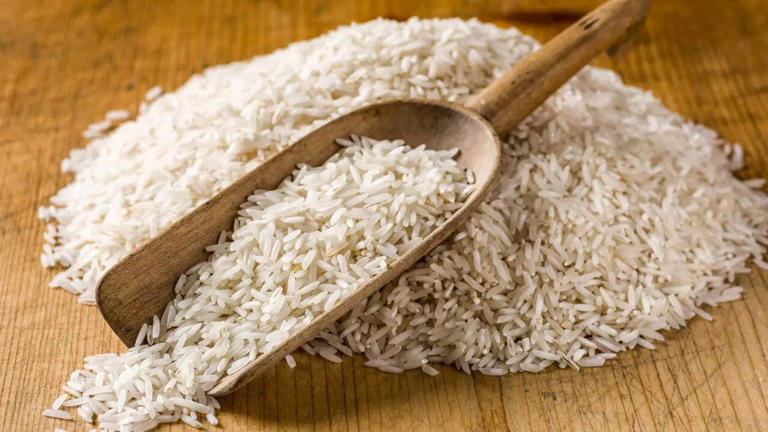Tags
Basmati Rice Prices Set To Reduce In India? Iran-Israel Conflict Likely to Dent Exports
Story by Times Now Digital.

The India-Iran basmati rice trade is facing serious headwinds as rising tensions from the Iran-Israel conflict threaten to curb exports, triggering a likely decline in domestic basmati prices. Industry sources expect prices to dip in the coming weeks following a 15–20 per cent surge over the past two months, which was fuelled by strong global demand and aggressive West Asian purchasing.
According to the Agricultural and Processed Foods Export Development Authority (APEDA), Iran was the third-largest importer of Indian basmati rice in 2024–25, after Saudi Arabia and Iraq, accounting for ₹6,374 crore, or 12.6 per cent of total exports.
The conflict has led to shipping disruptions and freight cost escalations, forcing exporters to re-evaluate trade routes and renegotiate contracts. Rajesh Jain Paharia, a leading basmati exporter, told The Economic Times, “The export prices have come down from $950–1,000 per tonne to $900–950, largely due to transshipment concerns and rising freight charges.”
Why It Matters
India is the world’s largest exporter of basmati rice, and any disruption in its trade with a major partner like Iran has direct implications on domestic prices and farmer incomes. Exporters fear a sharp dip in orders from Iran if the regional conflict deepens or shipping lanes are further disrupted in the Gulf region.
Prem Garg, National President of the Indian Rice Exporters Federation, raised concerns about payment bottlenecks, revealing that exporters are grappling with pending dues worth ₹1,000–1,200 crore. “In our trade with Iran, we take 20 per cent advance and the remaining is on 180-day credit,” Paharia noted, underlining the financial exposure Indian traders currently face.
Recent Price Trends and Outlook
The basmati price surge in April and May was a result of aggressive restocking by Gulf nations when prices dropped to ₹75–90 per kg, followed by a rebound in May. However, traders now anticipate a correction or stabilisation in prices in the short term unless the situation escalates further.
Dhaval Shah, a Maharashtra-based exporter, explained the sudden spike: “Prices had hit rock bottom in April due to weak global demand, but fears of rising conflict spurred a buying rush in May. Now, unless the war worsens or external factors like the Trump effect come into play, we expect stability.”
Nonetheless, if the geopolitical crisis persists or worsens, countries may once again ramp up foodgrain purchases to shore up food security, potentially creating short-term spikes in global demand.
Key Concerns Going Forward:
- Delayed payments and banking constraints with Iran due to sanctions and currency transfer issues.
- Shipping route volatility in the Persian Gulf and Arabian Sea, impacting delivery schedules.
- Potential over-reliance on limited West Asian buyers, highlighting the need for diversification in India’s basmati export markets.
- Volatility in international rice markets due to climate disruptions and political instability.
Published Date: June 18, 2025






